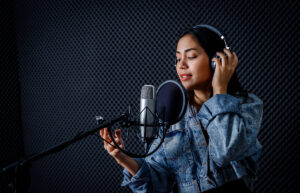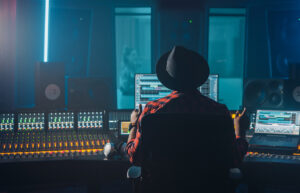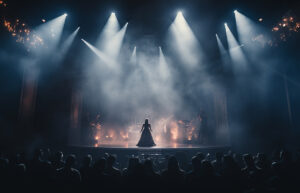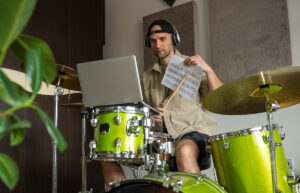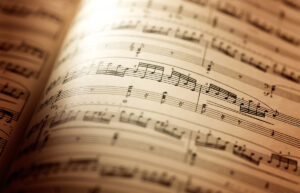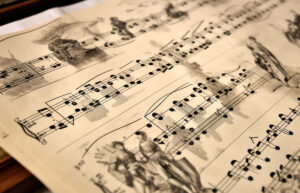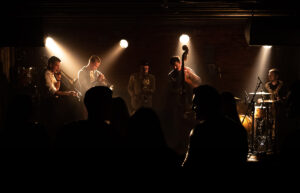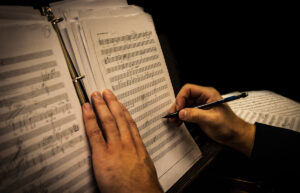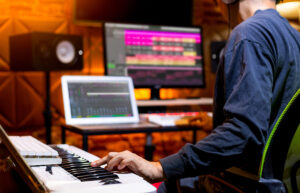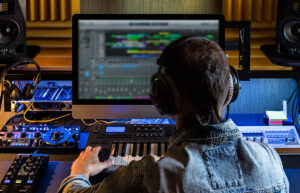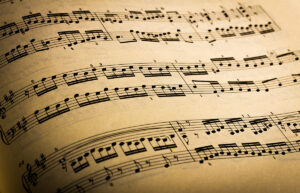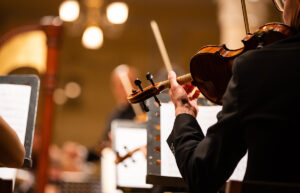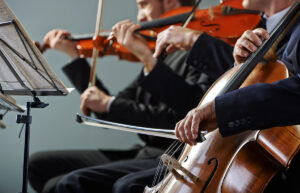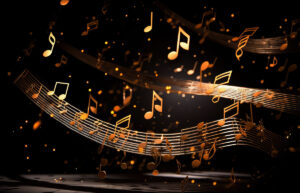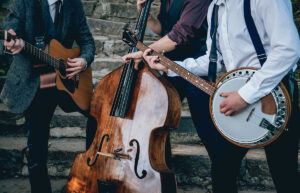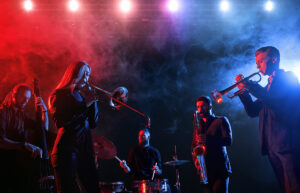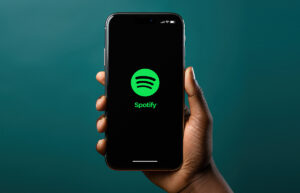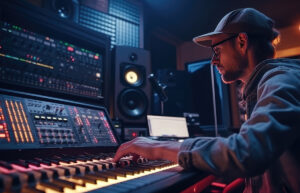How to Copyright Music: Meaning, Types, Eligibility, Steps & More

Protecting your musical creation is just as important as bringing it to life. Picture giving your music the protection it deserves, safeguarding your creativity so it remains uniquely yours. In this guide on ‘How to copyright music,’ we’ll lead you through each step, empowering you to navigate the world of copyright protection. Let’s embark on this journey together!
Welcome to TheDemoStop, now join the community!
Connect with artists, fans and producers around the world.
What is music copyright?
Music copyright is all about protecting original musical works, including compositions, lyrics, melodies, and recordings. It gives creators or owners exclusive rights over their music, letting them decide how others use, perform, reproduce, distribute, or adapt.
The music copyright is a legal protection that ensures the creators get credit for their work and have the power to allow or stop its use, safeguarding their intellectual property from unauthorized exploitation.
Types of music copyright
Knowing the types of music copyright is essential before delving into the process of how to copyright music. Here’s a breakdown:
The composition
This type of copyright protects the musical composition itself, including its structure, melodies, harmonies, and lyrics. It encompasses elements created by the songwriter or composer. Composition copyright allows the owner to manage the reproduction, distribution, public performance, adaptation, and display of the music. It safeguards the sheet music, lyrics, and overall structure of the song.
The sound recording
Sound recording copyright safeguards the specific recording of a musical composition. It covers aspects such as performance, production, mixing, and music mastering. Even if the composition itself is in the public domain, a new recording of it can still be copyrighted. This copyright grants the owner control over the reproduction, distribution, public performance, and adaptation of that particular recorded version of the music. Typically, artists, producers, or record labels own this type of copyright.
Important things to know about music copyrights
Copyright applies automatically
Once a musical composition is created and fixed in a tangible form (written down or recorded), it’s automatically protected by copyright. Registration or formalities are not necessary to establish copyright ownership. However, registering your copyright can provide additional legal benefits and evidence of ownership.
Copyright protection lasts for a long time
In most countries, including the USA, the duration of copyright protection for music and other creative works lasts for the life of the creator plus a certain number of years after their death. This duration can vary based on local laws and international agreements but generally extends for several decades.
Copyright applies to specific uses of your music
Copyright protection gives you the exclusive right to reproduce the music, distribute copies, perform it publicly, and create derivative works (like remixes or adaptations). These rights enable you to control how your music is used and ensure you’re compensated for its usage.
You can enforce your copyright
If someone infringes on your music copyright by using it without permission, you have legal rights to take action. The process can involve sending cease-and-desist letters, negotiating licensing agreements, or pursuing legal action, including the possibility of damages and injunctions through the legal system.
What music is eligible for copyright?
Music eligible for copyright protection includes original compositions, whether they’re melodies, lyrics, harmonies, or arrangements created by composers or songwriters. Additionally, sound recordings of these compositions, encompassing studio-recorded tracks or live performances fixed in tangible forms like audio files or physical recordings, are eligible.
Written or printed musical notations, such as sheet music or lead sheets, also fall under copyright protection. It’s crucial to understand that copyright safeguards the expression of these musical ideas once they’re fixed in a tangible form but doesn’t protect concepts, methods, or mere ideas themselves.
How to copyright a song?
Register your copyright
Registering your song’s copyright with the appropriate government office, such as the US Copyright Office, provides a public record of ownership. While copyright protection is automatic upon creation, registration can offer legal advantages, especially if you need to enforce your rights in court. This process of registering and understanding how to copyright music can be crucial for protecting your creative work.
Consider copyrighting your lyrics and music separately
You have the option to copyright your lyrics and music as separate entities. Copyrighting them separately allows you to retain control over each element individually, giving you more flexibility in licensing or distributing your work.
File the right forms (USCO)
When registering your song with the US Copyright Office, you’ll need to fill out the appropriate forms and submit the required materials, which typically include details about the song, its creators, and a copy of the song itself (lyrics, sheet music, or recording).
Protect and enforce your copyright
After obtaining copyright registration, monitoring and protecting your rights is important. This involves being vigilant about unauthorized uses of your music and taking action when necessary. Part of knowing how to copyright music includes sending cease-and-desist letters, negotiating licenses, or pursuing legal action against infringement to enforce your rights as a copyright holder.
Welcome to TheDemoStop, now join the community!
Connect with artists, fans and producers around the world.
Benefits of music copyright
Certificate of registration
Obtaining a copyright registration provides you with a certificate as proof of your ownership. This official document from the copyright office serves as concrete evidence of your rights and can be beneficial in legal disputes, when licensing your music, or when seeking damages in case of infringement.
Enabling complaint filing
Having a copyright registration allows you to file complaints with online platforms and services that host or distribute music. This can help in getting unauthorized copies or uses of your music removed more swiftly and effectively.
Qualified to receive greater compensation
Copyright registration can entitle you to higher compensation in legal proceedings if your music is unlawfully used or if you’re involved in licensing agreements. Statutory damages and attorney fees may be available if the copyright was registered before the infringement occurred.
Official record of ownership
Registration creates an official public record of your ownership, making it easier for others to find and contact you for licensing or collaboration opportunities. It also prevents others from claiming ownership of your work. A registered copyright also establishes a clear timeline and evidence of your ownership.
Save your time and money
While copyright exists automatically upon creation, registering your copyright upfront can potentially save you time and money in the long run by streamlining the process of asserting and defending your rights if infringement occurs.
Rights of copyright owners
Reproduction of work
Copyright owners have the exclusive right to reproduce their work, meaning they can control the making of copies or duplicates of their music, whether in physical form (like CDs or vinyl records) or digital form (like downloads or streaming).
Performances of work
Copyright owners have the exclusive right to perform their music publicly. This includes live performances, concerts, plays on the radio, or playing music in public places like restaurants, clubs, or concerts.
Communication of work
Owners of copyrighted music have the exclusive right to communicate their music to the public. This covers activities like broadcasting the music, transmitting it over the internet, or making it available for on-demand streaming.
Adaptation and translation
Copyright owners hold the exclusive right to create adaptations or translations of their music. This includes making remixes, creating derivative works, or translating the lyrics into another language. Any modifications or transformations of the original work fall under the control of the copyright owner.
Conclusion
What is music copyright?
Music copyright refers to the legal protection granted to original musical compositions, songs, and recordings. It grants exclusive rights to the creators or owners, allowing them to control how their music is used, reproduced, performed, distributed, or adapted by others, thereby safeguarding their intellectual property from unauthorized usage or exploitation.
Types of music copyright
- The composition
- The sound recording
Important things to know about Music Copyrights
- Copyright applies automatically
- Copyright protection lasts for a long time
- Copyright applies to specific uses of your music
- You can enforce your copyright
What music is eligible for copyright?
Music that meets the criteria of originality, creativity, and fixation in a tangible form is eligible for copyright protection. This includes original musical compositions, recorded music, and written or printed musical notations such as sheet music.
How to copyright a song
- Register your copyright
- Consider copyrighting your lyrics and music separately
- File the right forms (USCO)
- Protect and enforce your copyright
Benefits of music copyright
- Certificate of registration
- Enabling complaint filing
- Qualified to receive greater compensation
- Official record of ownership
- Save your time and money
Rights of copyright owners
- Reproduction of work
- Performances of work
- Communication of work
- Adaptation and translation
FAQs
What is music copyright?
Music copyright is the legal protection of original musical compositions and recordings, giving creators exclusive rights over their use and distribution.
What are the benefits of music copyright?
- Certificate of registration
- Enabling complaint filing
- Qualified to receive greater compensation
- Official record of ownership
- Save your time and money
What are the types of music copyright?
- The composition
- The sound recording
What are the important things to know about music copyrights?
- Copyright applies automatically
- Copyright protection lasts for a long time
- Copyright applies to specific uses of your music
- You can enforce your copyright
How to copyright a song?
- Register your copyright
- Consider copyrighting your lyrics and music separately
- File the right forms (USCO)
- Protect and enforce your copyright
What happens if your music is copyrighted?
If your music is copyrighted, you have legal rights to control its use, reproduction, distribution, performance, and adaptation, and can take legal action against unauthorized usage.
What are the rights of copyright owners?
- Reproduction of work
- Performances of work
- Communication of work
- Adaptation and translation
Can you legally use an owner’s music without permission?
No, using an owner’s music without permission infringes upon their copyright and is illegal.



